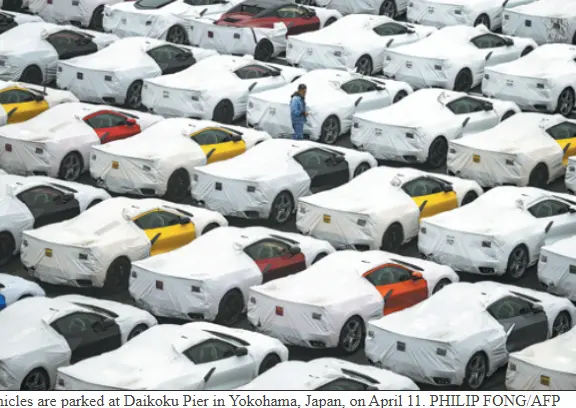**Author: Gustavo Ng **
The meeting held by Presidents Xi Jinping and Alberto Fernández in Bali, within the framework of the G20, had two objectives. A general one of reviewing the wide range of developing bilateral agreements, in various stages ranging from mere intention to ongoing negotiation or execution. The other object was more urgent for Argentina, and was related with the monetary reserves of its Central Bank. That was a critical point of the Fernández government, due to the high indebtedness in dollars inherited from the previous administration of Mauricio Macri and the constant pressure on the exchange rate exert by exporters, financial economic groups and a virtually bi-monetary society.
In the first point, some agreements were reviewed that could be shuttled because Argentina's entry into the Belt and Road or other cooperation mechanisms, already discussed with Xi during Fernández's visit to Beijing last February.
In the second, Argentina achieved what it proposed, which were, in turn, two issues:
a) Expand the currency swap between Central Banks for yuan equivalent to about 5,000 million dollars (currently they were around 18,000 million, to which the new amount must now be added), but freely available, that is, the Central Bank Argentina will strengthen its holding of foreign currency and will be able to use those 5,000 million for its monetary policy, payment of imports, etc. This agreement with China is also on the way to finding more extensive exchange mechanisms in national currencies —Argentine pesos and yuan—, without going through the dollar, for the payment of imports that Argentina makes from China. In this sense, the recent 10-year anniversary of the Chinese bank ICBC in Argentina also served to announce a clearing with more facilitations in this regard.
b) Get China to compensate Argentina for investments in hydroelectric dams on the Santa Cruz River in Patagonia, which are financed by China but which, given the changes in the contracts and addendums, were being funded by the Argentine Treasury. At his returning from Indonesia, the Argentine Economy Minister, Sergio Massa, explained that China promised to transfer 500 million dollars, broken down into 223 million in compensation for what Argentina put in while renewing and adding addendums to the contract, due to the changes that had the work, plus 277 million in advance.
The Kirchner and Cepernic dams in southern Patagonia are China's largest investment (through the Gezhouba group) in Argentina. It is delayed by the changes that took place throughout three governments and 40% of its construction has been completed.
Both the swap issue and the dam credit are a great relief to Argentina's external monetary position.
The final declaration of the G20 is considered satisfactory by the Argentine government due to the urgent demand for peace and other issues, which Argentina and all of Latin America share. But regarding the war, there is relatively little that the countries of the South can contribute. Such countries, however, are the ones that most suffer the consequences —obviously not counting the Ukraine and Russia, its direct victims. Countries like Argentina, which count on energy and food production capacity to contribute to the crisis aggravated by the war, demand peace and negotiations (as Mexico did before the UN, among others), but not much more.
Even beyond the rhetoric, not even the great powers can advance against the war as the final text says, because it also recognizes —at the same time that it emphatically calls for “stopping the war”— that the G20 "is not the forum to resolve security issues." So, there’s a trap. If that is not the scope and the UN Assembly often votes overwhelmingly for a cause (the question of the State of Palestine, the end of the blockade against Cuba) and yet no progress is made, or if the Security Council permanent members do not agree, what is the scope of "global governance" that serves humanity? There is an unresolved crisis that therefore calls for an urgent reconfiguration of the multilateral system. Another example is climate change, where there are no global agreements or if there are, they are not complied with.
In this sense, China's contributions with its Belt and Road Initiative or the idea of a Community with a Shared Future are on the right track and Argentina shares their purposes. Such position does not ignore that the current scenario carries the risk of deliberately breaking relations with China by the most belligerent forces in the West. As a relatively weak country, Argentina conducts its foreign policy with a delicate balance between the great powers and their geopolitical games.
In addition to the war, a point that Argentina raised is the need to review the IMF's surcharge policy and managed to give continuity to the initiative raised at the Rome summit last year. In the Indonesia's final communiqué, the G20 promised to take that claim to the IMF, which on other occasions rejected the request. For Argentina, these surcharges (extra fee charged to indebted countries that cannot cover their obligations) are a real punishment and represent an expenditure of close to 1,000 million dollars per year. In the case of Argentina, it was due to a record debt of more than 40,000 million that former President Macri took on at the end of his term in alliance with Donald Trump (whose country has decisive weight in the IMF), and that —which has been recognized by of Trump administration officials—was to finance Macri’s electoral campaign and to pay economic and financial groups, but for no other benefit. Since Argentina could not comply with the repayments of that credit until the agreement reached well into the Fernández government, it suffers the punishment of having these surcharges. Other countries have the same problem and are asking the IMF to consider eliminating them. The G20 will take the claim. Argentina asked France to make the proposal and President Emmanuel Macron promised to do so.
"In the final document of the Summit, President @alferdez and the leaders of the other member countries requested a review of the International Monetary Fund's overcharge policy, in line with the proposal that the Argentine government has been carrying out," said the foreign minister. Santiago Cafiero on his Twitter account.
It will be necessary to see if this time the directory of the organism meets the request. That is, if the G20 recommendation has a real effect.
Apart from that, in the spirit of Argentina's emphasis on social inclusion, the document acknowledges that affordable, high-quality digital connectivity is key to inclusion and digital transformation and encourages the promotion of digital skills and literacy to take advantage of the benefits of the digital economy, particularly for women, girls and people in vulnerable situations. Argentina expressed its total agreement on this issue.
In Argentina, Xi's speech was followed closely, and it was clear that the Chinese leader was the most requested by other colleagues to have bilateral meetings —which expresses the growing relevance that China is gaining in global affairs. Argentines also payed attention on how he reproached the Prime Minister of Canada for disclosing the contents of his private meeting to the press. It was considered unusual for such criticism to be made in public, which was also read as a more frank, firmer and more assertive position on the part of China and its president. It had quite an impact in the Argentine media.
Regarding Xi's speech, the official Argentine news agency, Télam, especially highlighted his concepts against "the use of food and energy as weapons", his rejection of "unilateral sanctions" and the claim that "we must lift the restrictions on relevant scientific and technological cooperation". Telam also underlined his explanation that the fundamental cause of the crises is not production or demand, but the interruption of supply chains and international cooperation. Some Western leaders propose having supply chains limited to Western countries, which would go against good dialogue and cooperation with the East. That is a high risk. Xi said, "The solution is to develop an open, stable and sustainable commodity market, and work together to unclog supply chains and stabilize market prices".
Another point that drew attention to Argentine media was when he asked the major world economies to contain the impact of the increases in their interest rates, which were adopted to combat inflation. "We must contain global inflation and resolve systemic risks in the economy and finances," he declared. He added that "developed economies must reduce the negative effect of their monetary policy adjustments and stabilize their debts at a sustainable level." And finally, Argentines got to know that Xi claimed that "modernization is not a privilege reserved for a single country. Pioneers of development should sincerely help others to develop and provide more global public goods. All major countries must fulfill their due responsibilities and do everything possible for the cause of global development".
In addition to the issue of the war, the swap and the issue of IMF surcharges, already mentioned, Argentina evaluated the meeting positively and believes that the challenges are to stop the war, contribute to a normalization of the commercial supply chains to stop the rise prices, tirelessly advocate for multilateralism and against ruptures between the West and East, seek global solutions to global problems (pandemic, climate change, etc.).
Upon his return to the country, Foreign Minister Santiago Cafiero recounted that part of the Argentine agenda in the G-20 was affected by the President's health issue (due to a gastric problem with bleeding, he had to be hospitalized for several hours). Thus, he was able to see President Xi, US President Joe Biden and the head of the IMF Kristalina Georgieva, but bilateral negotiations with Germany, with Italy, with Saudi Arabia could not have place.
(ASIA PACIFIC DAILY)
 简体中文
简体中文













